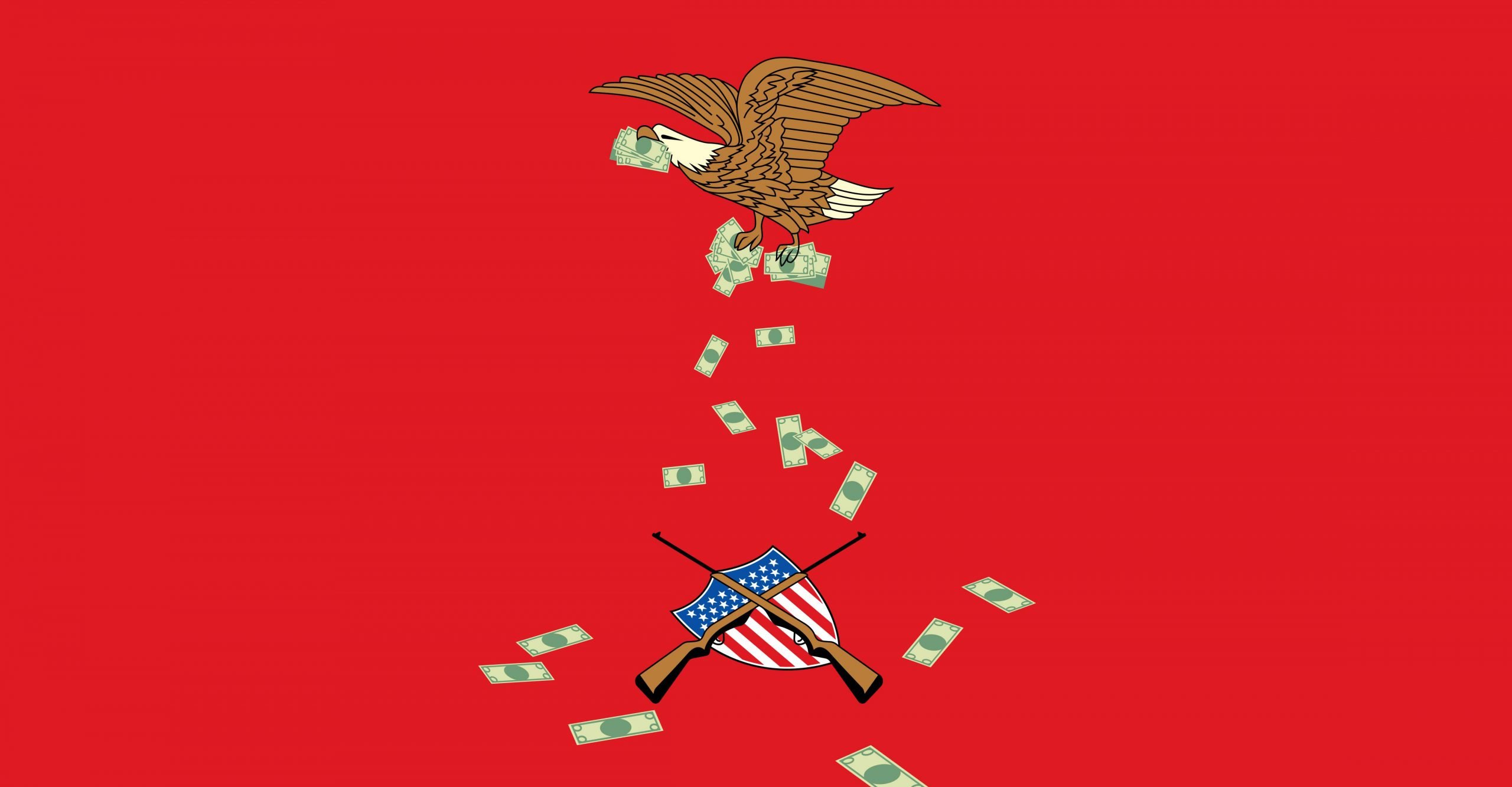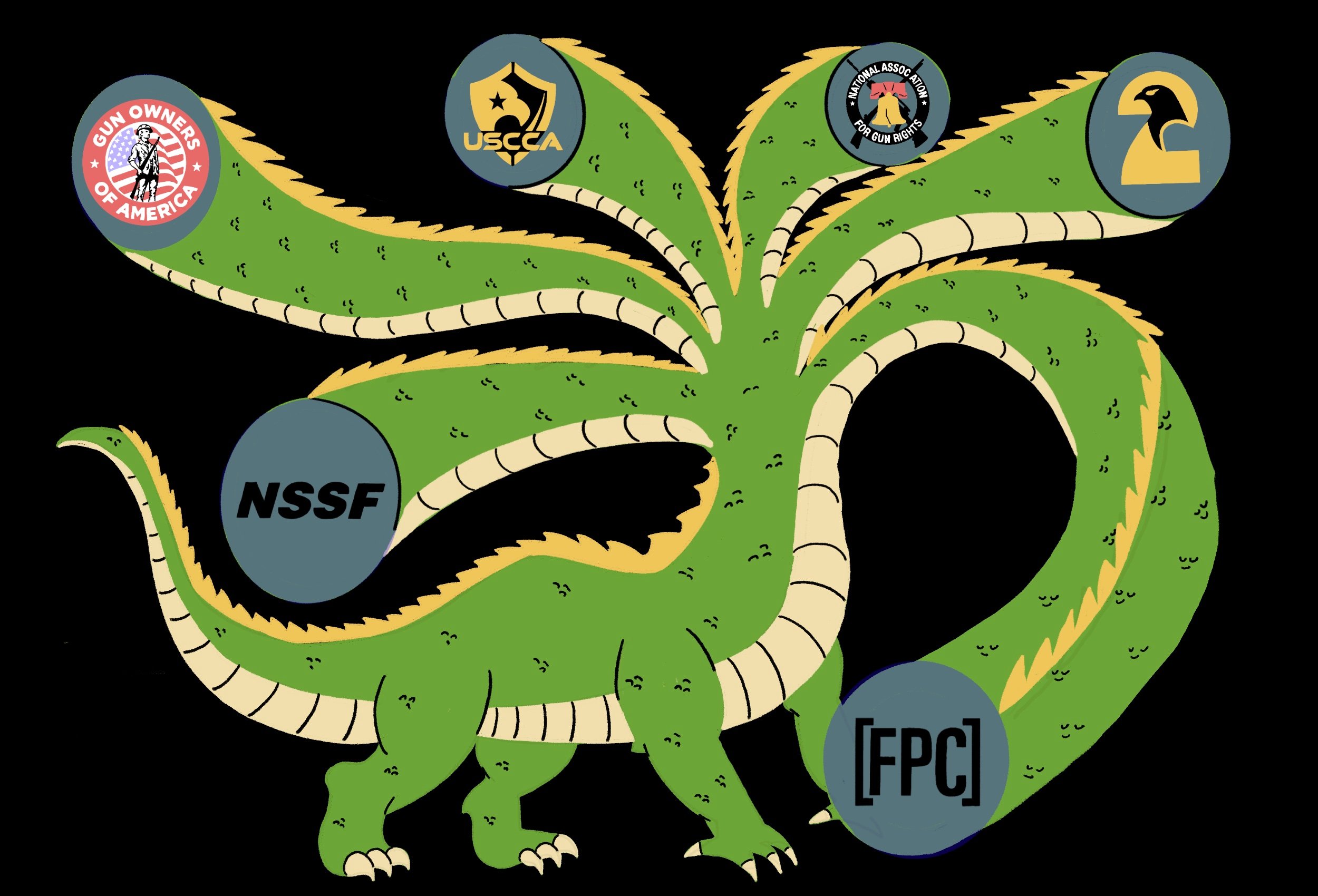The National Rifle Association’s unique strength is derived from its sizable membership, whose dues provide the group with its largest source of revenue. In fiery public appeals, NRA leaders implore supporters to sustain the nonprofit’s defense of the Second Amendment against gun-grabbing “elites.”
But to an extent not previously known, a primary activity of NRA executives and insiders has been their own enrichment. An investigation by The Trace, published in partnership with The New Yorker, reveals a web of business arrangements that have steered hundreds of millions of dollars to NRA executives, contractors, and favored vendors.
Many of the payments and contracts present clear conflicts of interest; some pass through multiple entities controlled by the same people, obscuring the amounts flowing to those benefiting.
Together, according to experts in nonprofit law, they could threaten the NRA’s tax-exempt status.
To piece together the story, The Trace’s Mike Spies drew upon internal documents, state filings, and information provided by current and former NRA employees.
The full investigation is worth your time. Here are some of his biggest findings.
A former senior employee raised alarms about sketchy payments, side deals, and conflicts of interest costing the NRA millions of dollars.
Spies obtained a set of handwritten memos drafted by Emily Cummins, who for more than a decade served as the NRA’s managing director of tax and risk management.
Cummins declined to comment for our story. But her memos make it clear why she was concerned: The documents describe enormous expenses not disclosed on the NRA’s past tax filings, and business practices that left the organization vulnerable to self-dealing and fraud.
“NRA pays overbilled, deceptive, vague invoices to ‘preferred’ vendors and contractors,” one entry says. Another mentions NRA staff “being told to process payments w/o documentation.”
Many of the problematic arrangements involved the NRA’s long-term messaging firm.
Ackerman McQueen is the Oklahoma-based public relations firm central to the NRA’s evolution into a no-compromise advocate for unchecked gun ownership. The NRA had for years disclosed payments to Ackerman totalling over $20 million annually. But its 2017 tax filings would show the true sum reached more than $40 million that year, or 12 percent of the NRA’s total expenses.
Ackerman has steadily extended its sway over the NRA, the memos allege, to the point where roughly a quarter of the NRA’s staff is “now managed by former employees” of the PR firm.
With ex-Ackerman staff directing a significant swath of the NRA’s operations, conflicts of interest are rampant. “Decisions are made in the best interests of vendors,” rather than the NRA, the memos assert.
The NRA pays executives and consultants through multiple entities, obscuring the true sums.
One of several examples detailed in the story involves Tony Makris, a longtime friend of NRA boss Wayne LaPierre. Makris serves as president of the Mercury Group, a wholly owned Ackerman subsidiary in Washington, D.C., and Under Wild Skies, a closely linked corporate entity. The NRA paid more than $8 million to the two companies in 2017. Makris also hosts a hunting show, also called “Under Wild Skies,” which is available on NRATV, the network that the NRA pays Ackerman to produce.
Another arrangement involves involves Tyler Schropp, who took over as head of the NRA’s high-dollar fundraising division in 2010. Schropp was a former executive at the Mercury Group, and while employed by the NRA he served as treasurer of Under Wild Skies. When Schropp was in charge, the fundraising division sent more and more business to Ackerman.
Other top executives have secured lucrative payouts or receive additional compensation from vendors.
Records revealed several payout arrangements that a nonprofit tax expert described as “extraordinary.” They include the package pledged to LaPierre, the NRA leader, who earns more than $1 million a year.
According to the documents, upon LaPierre’s retirement, his consulting services and personal appearances will be compensated “at an annual rate that starts at his currently contracted final base salary and is later reduced.”
Wayne Sheets, the executive director of the NRA Foundation, retired from the organization in 2008 but continued to serve as a fundraising consultant. His contract stipulated a “base monthly consulting fee” of $30,000. It was to be paid “regardless of the number of consulting hours provided.” In 2017, the NRA paid Sheets $710,000. He received an additional $240,000 in “expense reimbursements.” The NRA recently extended Sheets’ contract through 2023.
The NRA blames New York state regulators for its current financial turmoil. But its problems are self-inflicted.
The NRA’s leadership attributes its money troubles to actions New York state officials have taken against the Carry Guard insurance program and a warning the state issued to financial firms about the reputational risk of doing business with the NRA.
But internal NRA memos say that from 2018 to 2019, its costs for insurance policies to “protect NRA directors and officers from claims by third parties” increased nearly 350 percent. The memos attribute the hike to “management’s shift in risk appetite.”
Peter Kochenburger, the deputy director of the Insurance Law Center at the University of Connecticut, told The Trace, “This seems to be pretty direct evidence that the NRA’s problems are not due to New York but rather to how the organization conducts itself.”
Experts who reviewed our reporting say the NRA’s actions could threaten its existence as a nonprofit.
“The litany of red flags is just extraordinary,” said Marc Owens, who spent a decade running the Internal Revenue Service division that oversees nonprofits. “The materials reflect one of the broadest arrays of likely transgressions that I’ve ever seen.”
Owens added, “Those facts, if confirmed, could lead to the revocation of the NRA’s tax-exempt status.”
The revelations are equally troubling to those who believe in the NRA’s mission.
Aaron Davis used to work as a fundraiser for the NRA. He shared the group’s pro-gun beliefs, but, along with some of his colleagues, grew dismayed as Ackerman’s influence increased.
Davis finally quit after a decade at the group. “I just thought, if the typical NRA member knew that this is how the organization really works, then there’s no way they would give money.”


